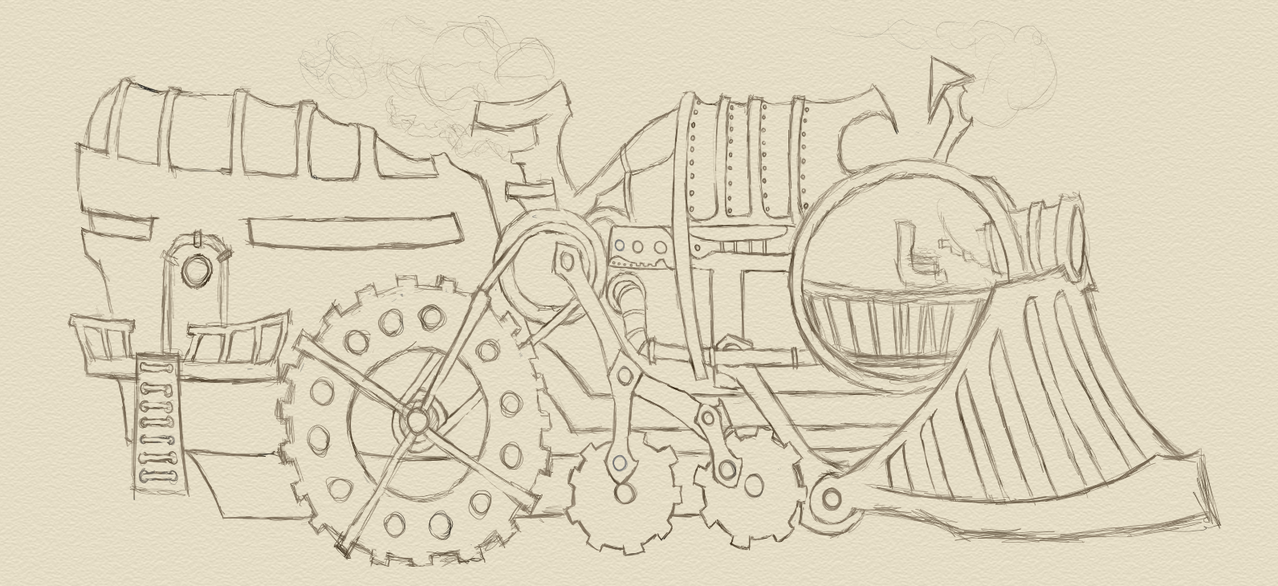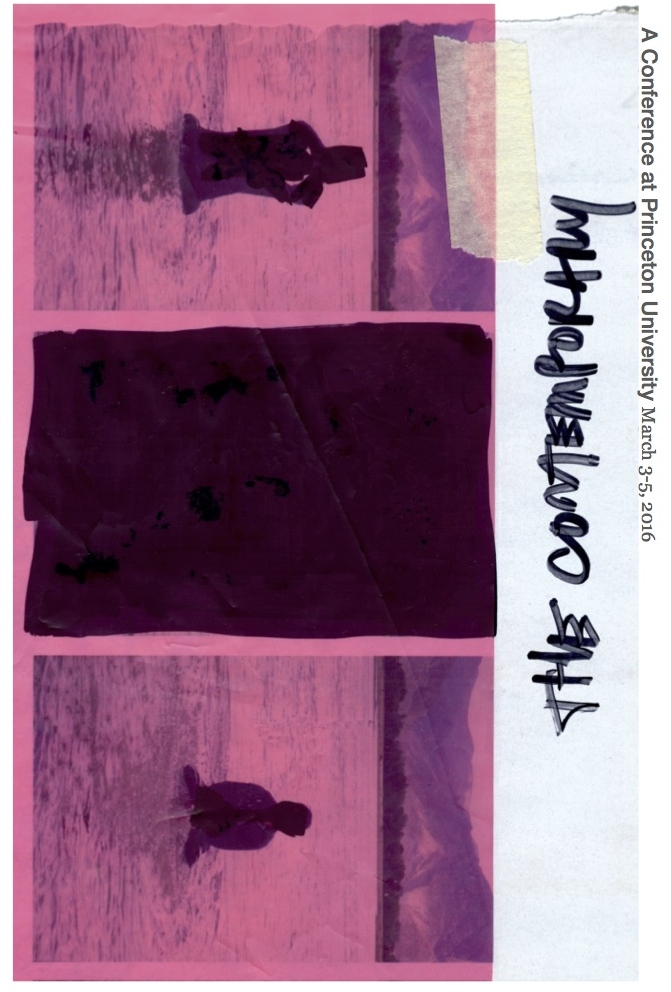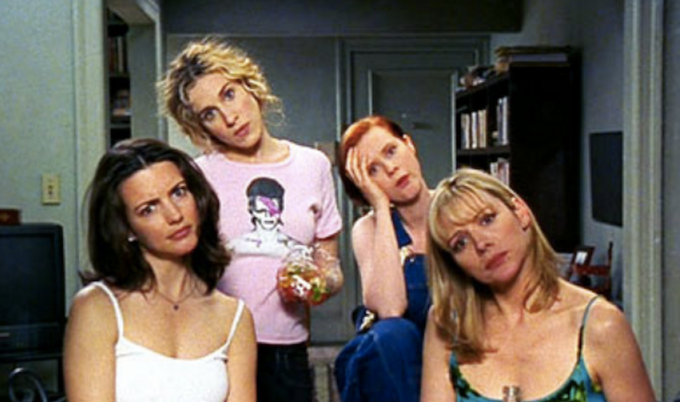My Struggle , vol. 6: Omari, September 25
Salem, OR
Dear all,
Before we get to Hitler, I want to talk about literary theory.
In my last letter to you, I was just beginning a new life on the West Coast. Two years later, I'm beginning my third academic year in this job and I have finally been tasked with teaching "Introduction to Literary Theory," a required course for the dwindling number of English majors that remain at my small liberal arts college. It's been more fun to teach this class than I care to admit. I would never label myself as anything like a theory bro (mostly because I wouldn't label myself as an "X bro" in any capacity where X stands for anything other than tennis). And yet, because a number of my colleagues now live in disparate parts of the country completing fellowships or enjoying leave, I have stepped in, or, to be more accurate, I was forced to step in, to teach a group of underclassmen about everything from structuralism to poststructuralism.
I enter that classroom every Monday and Wednesday dreading what I fear will become the eventual question: why does any of this matter? If language just works, why am I being forced to endure the torture that is Derrida? (Aside: a student recently called Derrida a cunt. I appreciated this moment of candor even as I notice that Derrida's playfulness now slips into my own writing sometimes.) I have few answers that are better than my mother's answer to my childhood question about why I need to eat my beets. She'd say, "Because I say so." This is an unsatisfying answer, especially to a child, and I rarely challenged her because where could the discussion go? Sense-making for the child who does not want to eat his beets is deferred and deferred and deferred until he's 31, writing a letter in a café and munching on a beet salad that has no beets on it.
But, let me start over. Like Dan, I come back to our friend K a little bit older, a lot less wise, and as a guy who has begun to participate in small talk with baristas and grocery store cashiers because rolling his eyes at every attempt to begin meaningless conversation grew old. I'm barely recognizable as the same person who obsessed over a Norwegian author's not-so-sex life and what that said about masculinity in the forthcoming age of President Hillary Clinton. I am certain her name never came up in any of my letters, but this new world really was in the background of all of my thinking that summer. I refuse to check because who wants to remember those halcyon days? (I promise that this letter will not be refracted only through our current political moment. You're tired. I'm tired. And, quite frankly, I wanted to turn to K to get outside of my obsession with my Twitter feed, a horror show of stale political takes and, currently, damning indictments of the sexist longue durée of Yale Law School.) I'm only about 200 pages into Book 6 of My Struggle and our man hasn't changed. His parenting skills have deteriorated, if that's even possible. His feelings about his wife Linda strike a fine balance between utter annoyance and negligible gratitude for the free babysitting she provides when she isn't going to barbecues up north. His ego has deflated a bit as he deals with the fallout of an uncle who refuses to see the Knausgaard name be libeled by Karl Ove's fidelity to his fantasies of his own memory. I try to remember what I like about him, but the affective relationship between him and me refuses to make itself known. It's akin to the perverse pleasure I get when I pick a scab that's not quite ready to be picked. It will sting, and I will bleed, and it will leave a mark, but I never can help myself.
But, let me begin again. I think I want to talk about K's superego in a future letter. Rather, I want to spend the rest of this letter talking about immigration, a topic that I don't remember thinking about in the other Struggle books and one that I don't know that I can hope he returns to, knowing the avalanche of Hitlerian musings that are to come. (Is that inelegantly phrased? Leave it in). I don't mean that his feelings about immigration are particularly surprising. He has the politics of the most liberal editor at the National Review. At one point, he points to Japan as having "such a peculiar culture," one that it would be a shame to lose were the West to cannibalize it. I have a lot to say about the use of Japan as having a culture that should be preserved, here, given the alt-right's use of Japan and China and other East Asian countries' strict barriers against mass immigration, barriers that continue to hold even in the midst of one of the largest refugee crises that the world has ever known. But, perhaps that is one discussion too far. Suffice it to say, the model of cultural homogeneity that Japan offers is complicated by K's love for Scandinavia, a region that can be a white nationalist utopia or dystopia depending on the cultural or economic argument one wants to make.
K loves the city that he and his family live in. Malmö, a city on the southwestern Swedish coast, is full of vibrant immigrant communities that bring a considerable texture to what could have been a sterile (read: white) space. As he describes it, Malmö stands in stark distinction from Stockholm, an overwhelmingly white city that refuses the stink of poverty that makes Malmö so alluring, so seductive. After contemplating the value of immigration for urban environments, K remarks:
"In the wider perspective [of colonialism and state violence], I was against immigration, against multiculturalism, against notions of sameness of nearly every kind. In the narrower perspective, that which related to the tangible, day-to-day reality of where I lived, in Malmö, it was hard not to look on immigration as an enormous resource all the while I could see how explosively vibrant and full of energy the city was compared to, say, Stockholm, where all the immigrants lived in the urban outskirts and the faces you saw in the city center were practically all white. Malmö, it's true, was run-down and poverty common to see, but at the same time the city vibrated in its contrasts, which all had to be brought together in synthesis and most surely were a gift to anyone who grew up there, with so many different experiences and backgrounds existing together side by side, and where a lot of what came about for that same reason came about as if for the first time, with all the freshness and vigor of the new."
I hate to be that guy, but is this not the whitest thing you've ever read? Immigration only matters for what it brings to already established (white) spaces. If it adds value, bring multiculturalism on. However, when K and the kids walk by a man begging for change, K identifies the man as coming from Eastern Europe, which he describes to his daughter Vanja as "a group of countries a long way away. They come here to beg for money. They're a kind of gang" (113). When they pass by another man looking for change and Vanja asks why K refuses to give him any money, K responds, "Because he's not doing anything. If he'd been playing an instrument or something I'd have given him some. That's what I usually do, anyway. But sometimes I might give something to beggars anyway. If I feel sorry for them. Never much, though" (114). This is anything but hospitality; it is a demand upon immigrants that if they do not work for K's affections, there is no transaction to be made. If that's how K treats Eastern Europeans, I shudder to think what will happen if or when brown people make an appearance in this sprawling text. I would be even less interested in hearing about what K thinks about refugees.
But what does K even mean when he refers to "culture"?
Let me begin again, here, because "culture" almost acts like a free-floating signifier that loses meaning as much as it makes it. You could say K is a Derridean in the way in which he sees language as a structuring structure of "culture." That is, for K, there is very little to distinguish language and culture—and also why would you want to distinguish between the two? The impetus for these musings on culture and difference, a paragraph that begins on page eighty-two and lasts several pages, don't provide enough (or any) context and I have to wonder about the timing of their delivery. This long paragraph begins with examples ad infinitum of K's questionable parenting skills. John, K's youngest, wants to be pushed in a swing at the playground. Once he gets into the swing, he decides that he would prefer not to. Then, because K is so gruff with a literal baby who changes his mind, the baby cries, and K retorts, "OK, if you're going to be so stubborn" (82). This utterance egregiously launches a paragraph that ends with the cultural vigor that poor immigrant communities inject into the urban social systems they inhabit. The playground, filled with white children on one side and populated by immigrant families on the other, leads K to the banal observation that "everything had its own significance, that was what culture was" (82). Is this not structuralism? Is K not Derrida, but Saussure? Does he think he's Barthes? Tell me if I'm totally off base, but after spending class after class with my lit theory students telling them that we're probably post-poststructuralists, that everything is made up and the points don't matter, I couldn't help but pause on this reading of culture that seems to want to invoke a pre-Derridean language about what culture means or is or does. Culture is trousers. Culture is curtains in a window. Culture is the lowering of a gaze. It is culturally contingent gestures. It is fabric. It is a baby not wanting to go for a swing.
But culture is also the structuring structure of state power and it draws a line in a park between white and immigrant populations that shall not be crossed. Culture is that which either makes itself available to K or it is as if it doesn't exist. He tries to walk this culture policing back by claiming that culture is so complex that it would be impossible for any one person to be able to comprehend it in its totality (as if that is ever the relationship that the individual wants to construct with "culture"). But, he seems adamant that culture can only construct relationships between those who share the ability to see the same shadows and traces and, quite frankly, to speak the same language. (I've been binge watching TLC's Before the 90 Days and I can assure you that people construct relationships without sharing anything in common.) I don't believe K when he labels himself as someone "who was fascinated by differences and attracted by impenetrability" (84). When Linda makes the rather benign and banal observation that life could be a bit more interesting if their family were larger, K shuts her down, claiming a visit from one of their mothers provided more than enough additional texture to the Knausgaard household. K's mother and Linda's mother provide the correct kind of variety, repetition with a generational difference.
When K talks about his affection for Eyvind Johnson's modernist novel, Molnen över Metapontion, he contemplates parts that are set in an Italian village in 1947. This village, more than ancient war or slavery, feels foreign to Knausgaard, because of its very proximity, it is unknowable because it is full of people alive now who would have experienced the sleepy life of rural Italy in the immediate postwar period. As he says, "When I read the book, the Italy of 1947 in fact felt more foreign to me than the Italy of the centuries before Christ, presumably because the latter was based on literature I knew, whereas the former was based on nothing other than life as it occurred at that time and which is barely to be found anywhere else than here" (45). I understand what he's saying. We have constructed narratives about past spectacular events by piecing together the literature about those events that have survived. Scholars of antiquity, for example, piece together historical narratives that we can fully trust and believe in because no one is here to tell us about how inaccurate those stories are. They are narratives of spongey malleability that can be bent and shaped into narratives we understand, narratives that are familiar, narratives of repetition with a generational difference. The closeness of the remote isn't always a given but it's exactly the remote character and temporality of these ancient narratives that allow K to falsely imagine that they are close.
The figure of the immigrant and the "foreign" "culture" the immigrant represents refuses to be remotely knowable and so K ultimately rejects the figure. Even when immigrants cluster into the same kinds of familial structures that everyone else in Sweden does, their foreignness is too proximate to be knowable. And, so, K doesn't even try.
Do I have a point here? I don't know. Everything is refracted through Derrida for me right now. Would he be a Trump supporter? I don't know that either. I'd like to think he wouldn't but I can't help but imagine K's response to the Trump administration's utter lack of empathy with people crossing the imaginary border set up many decades ago between the United States and Mexico, and to imagine, if this is how K treats his own children, what kind of care or empathy could he possibly have for someone else's?
Warmest best,
Omari
- It's lovely to be back in conversation with you all. Perhaps even better to think along with you as the semester unfurls into the knotty mess into which it always unfurls.
ALSO IN THIS SERIES:
The Slow Burn, v.2: Welcome Back
The Slow Burn, v.2: An Introduction
My Struggle, vol. 1: Cecily, June 6
My Struggle, vol. 1: Diana, June 9
My Struggle, vol. 1: Omari, June 14
My Struggle, vol. 2: Dan, June 17
My Struggle, vol. 2: Omari, June 24
My Struggle, vol. 2: Cecily, July 1
My Struggle, vol. 2: Sarah Chihaya, July 5
My Struggle, vol. 2: Dan, July 12
My Struggle, vol. 2: Diana, July 16
My Struggle, vol. 2: Jess Arndt, July 18
My Struggle, vol. 3: Omari, July 25
My Struggle, vol. 3: Ari M. Brostoff, August 1
My Struggle, vol. 3: Dan, August 4
My Struggle, vol. 3: Jacob Brogan, August 8My Struggle, vol. 3: Diana, August 12
My Struggle, vol. 4: Katherine Hill, August 25
My Struggle, vol. 4: Omari, September 1
My Struggle, vol. 4: Dan, September 2
My Struggle, vol. 4: Diana, September 15
My Struggle, vol. 5: Omari, September 27
My Struggle, vol. 5: Diana, October 3
My Struggle, vol. 5: Dan, October 13
My Struggle, vol. 6: Omari, September 25
My Struggle, vol. 6: Dan, September 28
My Struggle, vol. 6: Stephanie, October 5
My Struggle, vol. 6: Cecily, October 9
My Struggle, vol. 6: Emily Tamkin, October 10
My Struggle, vol. 6: Diana, October 15
My Struggle, vol. 6: Rachel Greenwald Smith, October 23
My Struggle, vol. 6: Katherine Hill, October 26
My Struggle, vol. 6: Omari, October 31





